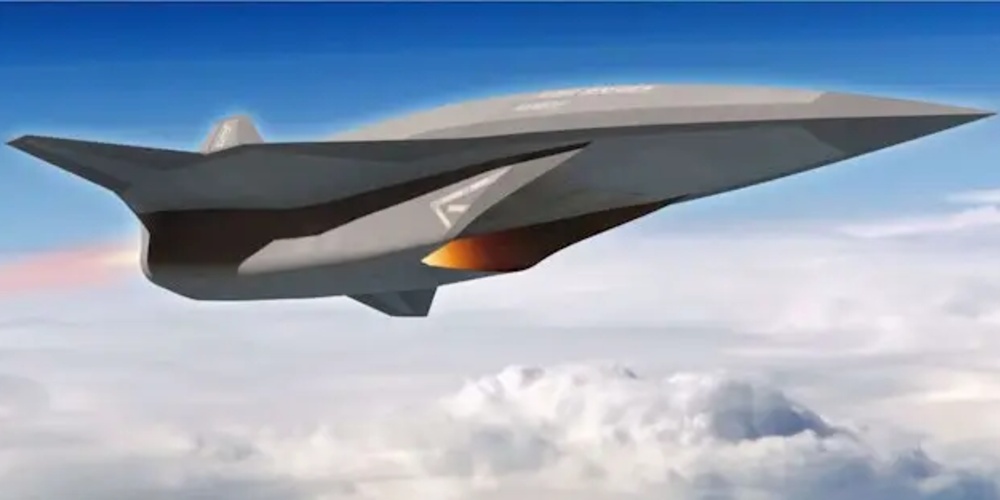- China unveils MD-22 hypersonic drone, capable of Mach 7 speeds and near-space operations.
- The drone is reusable, can travel 8,000 km, and carry 600 kg payloads for military and civilian use.
- It launches mid-air from a high-altitude balloon, eliminating the need for traditional runways.
- While China leads in hypersonic tech, the U.S., Russia, and others are also advancing in the field.
- The drone’s potential for global security and scientific innovation raises both concerns and opportunities.
China’s recent unveiling of a hypersonic drone has sent ripples through the global aerospace community. A video released by the Chinese Academy of Sciences (CAS) shows the MD-22, a cutting-edge unmanned aircraft, being launched from a high-altitude balloon and reaching speeds of Mach 7 before landing safely. This breakthrough marks a significant step forward in China’s quest for dominance in hypersonic technology. What exactly is this drone, and should Americans be concerned about China’s advancements?
What makes the hypersonic drone special?
The MD-22 is no ordinary drone. It operates in the “near-space” zone, a region between conventional aircraft and satellites. This gives it unparalleled flexibility and strategic capabilities. The drone can travel up to 8,000 kilometers (4,971 miles) and carry payloads of 600 kilograms (1,323 pounds), making it a formidable tool for both military and civilian applications.
One of the most impressive features of the MD-22 is its reusability. Unlike traditional hypersonic vehicles, which are often single-use, the MD-22 can land horizontally on a runway and be reused. This not only reduces costs but also opens up new possibilities for frequent and efficient testing. The drone’s ability to decelerate from hypersonic speeds to subsonic speeds for landing is a technological feat that few nations have achieved.
Another standout feature is its launch method. The drone is launched mid-air from a high-altitude balloon, eliminating the need for traditional runways. This makes it highly adaptable and capable of operating in remote or challenging environments. The combination of hypersonic speed, reusability, and flexible launch options positions the MD-22 as a game-changer in aerospace technology.
Should Americans worry?
China’s advancements in hypersonic technology are part of a broader push to lead in science and innovation. The MD-22 is just one example of China’s efforts to outpace other nations in aerospace research. While this may seem like a cause for concern, it’s important to put these developments into perspective.
First, hypersonic technology is not exclusive to China. The United States, Russia, and other nations are also investing heavily in this field. The race for hypersonic supremacy is a global competition, and while China is making strides, it’s not alone in this endeavor.
Second, hypersonic technology has both military and civilian applications. While the MD-22’s capabilities could be used for strategic purposes, it also has potential for scientific research, disaster response, and even space exploration. The ability to operate in near-space could lead to new discoveries and innovations that benefit humanity as a whole.
However, it’s undeniable that China’s rapid progress in hypersonic technology raises questions about the future of global security. As nations continue to develop advanced weapons and aerospace systems, the risk of an arms race increases. The international community must work together to ensure that these technologies are used responsibly and do not lead to conflict.
China’s hypersonic drone represents a new era in aerospace technology. Its reusability, flexible launch capabilities, and near-space operations set it apart from traditional drones and hypersonic vehicles. While the implications for global security are significant, it’s crucial to view these advancements in the broader context of international competition and collaboration.
As China continues to push the boundaries of what’s possible in aerospace, the rest of the world will need to keep pace. The MD-22 is a reminder that innovation knows no borders, and the future of aerospace technology will be shaped by the efforts of nations working together—or in competition—to achieve new heights.
Sources for this article include:
Controlling Protein Is One of the Globalists’ Primary Goals
Between the globalists, corporate interests, and our own government, the food supply is being targeted from multiple angles. It isn’t just silly regulations and misguided subsidies driving natural foods away. Bird flu, sabotaged food processing plants, mysterious deaths of entire cattle herds, arson attacks, and an incessant push to make climate change the primary consideration for all things are combining for a perfect storm to exacerbate the ongoing food crisis.
The primary target is protein. Specifically, they’re going after beef as the environmental boogeyman. They want us eating vegetable-based proteins, lab-grown meat, or even bugs instead of anything that walked the pastures of America. This is why we launched a long-term storage prepper beef company that provides high-quality food that’s shelf-stable for up to 25-years.
At Prepper All-Naturals, we believe Americans should be eating real food today and into the future regardless of what the powers-that-be demand of us. We will never use lab-grown beef. We will never allow our cattle to be injected with mRNA vaccines. We will never bow to the draconian diktats of the climate change cult.
Visit Prepper All-Naturals and use promo code “veterans25” to get 25% off plus free shipping on Ribeye, NY Strip, Tenderloin, and other high-quality cuts of beef. It’s cooked sous vide, then freeze dried and packaged with no other ingredients, just beef. Stock up for the long haul today.


